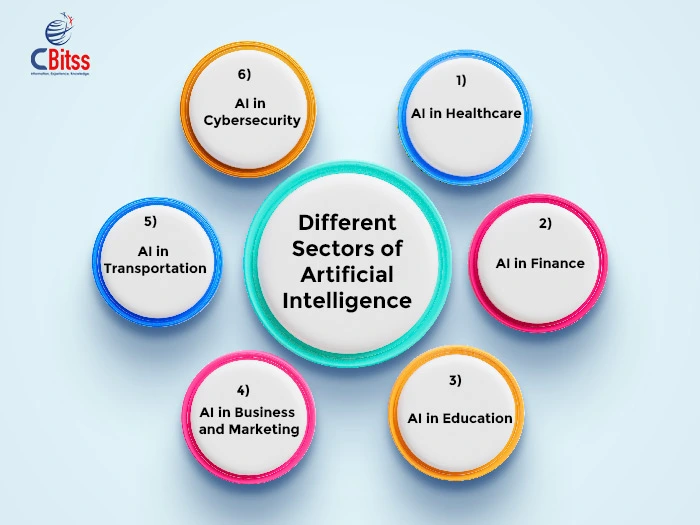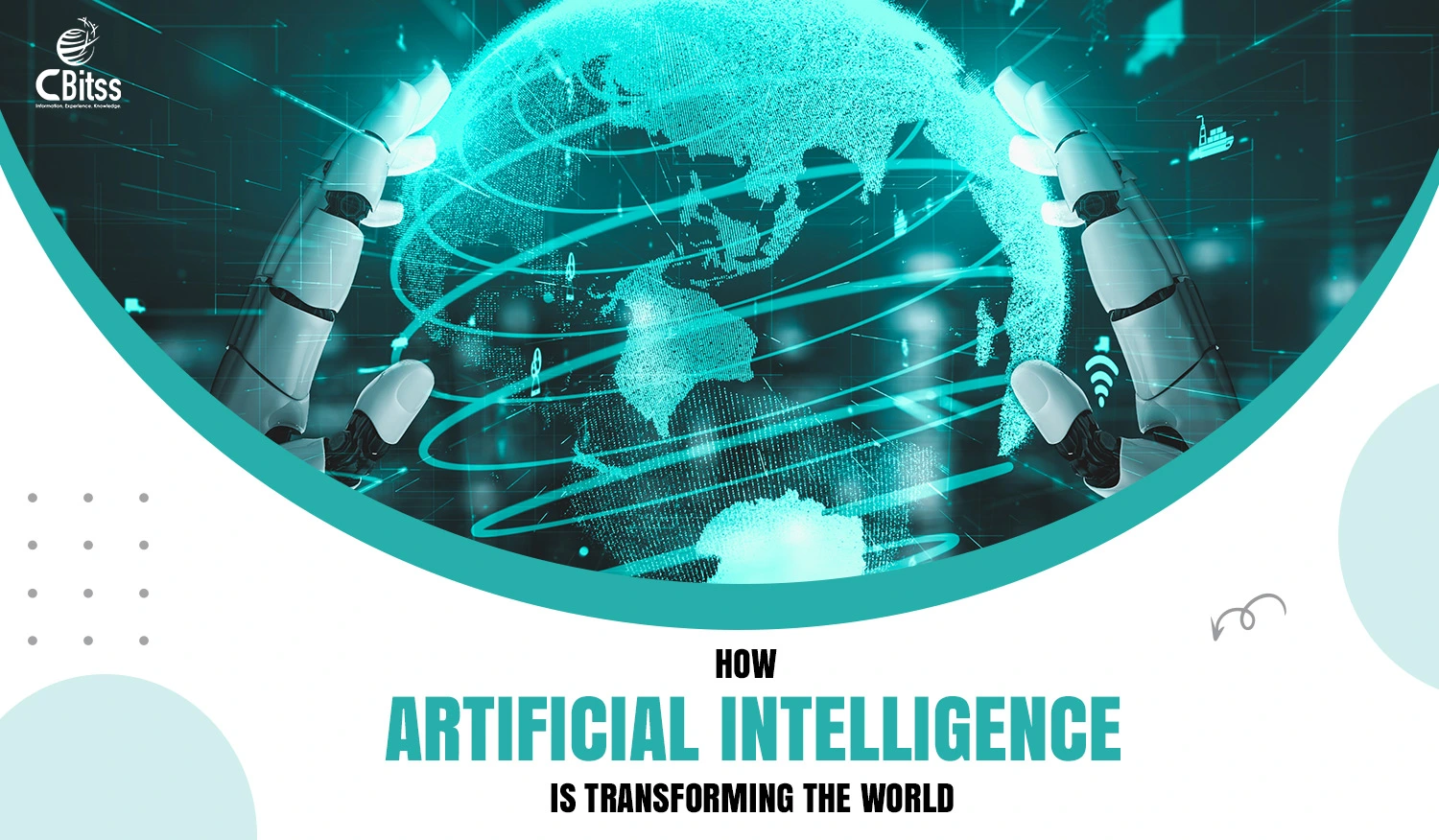Introduction
The impact of artificial intelligence on the world becomes apparent through its widespread adoption across virtually all industries. Artificial intelligence drives business transformation while advancing healthcare services and operational efficiency throughout our daily routines. AI technology has become essential in modern society through smart assistants and self-driving cars. The blog post examines artificial intelligence’s transformative impact on the world and its influence across multiple sectors.
The Impact of Artificial Intelligence on Everyday Life
Artificial intelligence serves as a foundational element for daily tasks by streamlining responsibilities and enhancing procedural efficiency. The following sections illustrate the primary domains where artificial intelligence directly affects operations.
Smart Assistants: Voice-controlled devices such as Alexa and Google Assistant along with Siri employ AI technology to process voice commands.
Personalized Recommendations: Netflix, Amazon, and Spotify analyze how users behave to deliver personalized content suggestions.
Facial Recognition: AI technology enables facial recognition in security systems as well as smartphone unlock mechanisms.
Automated Customer Support: Virtual assistants and chatbots efficiently process queries which helps to decrease customer waiting periods.
Navigation and Traffic Management: GPS systems that incorporate artificial intelligence adjust travel paths and foresee traffic patterns.
Artificial Intelligence in Different Sectors

1. AI in Healthcare
The healthcare industry experiences transformation through artificial intelligence which enhances diagnostic methods and treatment processes along with better patient care. The healthcare industry benefits from AI solutions that enhance both the precision and performance of medical services.
| Application | Impact |
|---|---|
| Medical Imaging | AI enhances the accuracy of MRI and CT scan interpretations. |
| Disease Prediction | Predictive analytics help in early detection of diseases like cancer and diabetes. |
| Virtual Health Assistants | AI chatbots provide instant medical advice and reminders. |
| Drug Discovery | AI speeds up drug research by analyzing large datasets. |
| Robotic Surgery | AI-driven robots assist in minimally invasive surgeries, reducing risks. |
2. AI in Finance
Advanced AI systems enable the financial industry to benefit greatly from their ability to analyze trends and detect fraudulent activities. AI protects against security threats while automating financial processes and improving customer service.
Fraud Detection: AI systems recognize atypical transactions while stopping fraudulent activities.
Algorithmic Trading: Automated trading systems powered by AI technology execute rapid and data-based stock transactions.
Personalized Banking: Customers receive assistance for transactions and inquiries through AI-based chatbots.
Credit Risk Assessment: AI systems process credit scores to determine accurate loan eligibility.
3. AI in Education
The application of AI in education delivers tailored learning experiences and streamlines administrative functions through automation.
Smart Tutor: CBitss utilize AI to deliver lessons that are tailored to individual needs.
Automated Grading: AI simplifies grading tasks by efficiently evaluating tests and assignments.
Language Translation: Students can learn various languages with ease through the use of AI-based language learning tools.
Adaptive Learning: AI personalizes course content to match each student’s individual learning speed.
4. AI in Business and Marketing
Businesses use AI to refine their marketing tactics while simultaneously boosting customer interaction and decision-making abilities.
| Business Function | |
| Digital Marketing | AI analyzes consumer behavior to improve targeted ads. |
| CRM | AI enhances customer relationship management through predictive analytics. |
| Inventory Management | AI predicts demand and optimizes stock levels. |
| Sales Forecasting | AI predicts trends and helps businesses make data-driven decisions. |
| Chatbots | AI-driven chatbots provide instant customer service. |
5. AI in Transportation
Transportation systems are undergoing major improvements because AI technology helps them operate safely while optimizing efficiency and reducing environmental impacts.
Self-Driving Cars: AI enables autonomous vehicles to navigate safely.
Traffic Management: AI optimizes traffic flow and reduces congestion.
Predictive Maintenance: AI tools detect possible vehicle problems early to prevent significant malfunctions.
Smart Logistics: AI improves supply chain operations by streamlining delivery path optimization.
6. AI in Cybersecurity
Real-time threat detection and prevention capabilities of AI technology enhance cybersecurity protection measures.
Threat Detection: AI identifies anomalies and detects malware.
Automated Responses: AI defends against cyber-attacks through instant responsive measures.
User Authentication: AI-powered biometric verification enhances security.
Phishing Prevention: AI systems actively identify and stop fraudulent emails and messages from reaching users.
Ethical and Social Challenges of AI
The advantages of AI are substantial yet it presents critical ethical and societal issues that require solutions.
1. Job Displacement
The automation of repetitive tasks by AI technology has the potential to result in workforce reductions within specific industries. AI generates fresh opportunities for professionals working in related fields.
2. Bias in AI
AI systems learn biases from their training data which results in discrimination during hiring processes and law enforcement activities.
3. Privacy Concerns
The use of AI systems for surveillance and data collection creates privacy risks which demand the implementation of strong regulatory measures and policies.
4. Security Threats
Malicious actors can use AI technology to conduct cyber attacks and spread deepfake videos and misinformation.
Future of Artificial Intelligence
AI advancements keep progressing which makes the future of artificial intelligence appear very promising. Here are some anticipated developments:
General AI: Future AI systems will develop enhanced autonomy and human-like reasoning and learning abilities.
Quantum Computing: By utilizing quantum computing AI systems will develop faster solutions for complicated problems.
AI in Space Exploration: Robots controlled by AI technology will play a critical role in planetary exploration and space mission operations.
AI-Enhanced Creativity: Artificial intelligence will play a significant role in the development of creative fields such as art and music along with content creation.
AI in Climate Change: Artificial intelligence systems will support environmental monitoring activities and help manage resources sustainably.
Through its impact on industries and daily life, artificial intelligence is reshaping global operations and improving both efficiency and quality of living. Healthcare and finance sectors along with education and business industries are witnessing innovation and advancement through AI. The proper management of ethical concerns and potential risks will enable AI to serve humanity in a responsible manner. The future of a smarter and more efficient world depends on harnessing AI capabilities while minimizing its risks.


